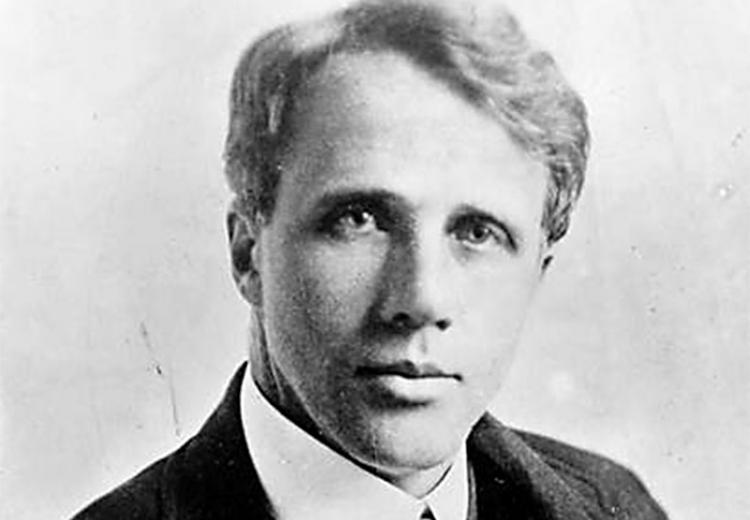Poems that Tell a Story: Narrative and Persona in the Poetry of Robert Frost

Portrait of Robert Frost.
"Whose woods these are I think I know.
His house is in the village, though;
He will not see me stopping here
To watch his woods fill up with snow."
-Robert Frost, "Stopping by Woods on a Snowy Evening"
Robert Frost's "Stopping by Woods on a Snowy Evening" tells an invitingly simple story. But as we read and reread the poem, we are drawn into questions and mysteries. Beginning with the oddly tentative note struck in the poem's first line, we are guided by a speaker who, it seems, conceals as much as he reveals. Who is the unnamed person whose woods these are and why is the speaker concerned about that person's presence or absence? Where has the speaker come from and where is he going? What draws him so powerfully to the cold deserted woods he calls "lovely, dark, and deep"?
In the suggested activities below, students explore such questions and mysteries in journal entries that build upon narrative hints in poems chosen from an online selection of Frost's most frequently anthologized and taught works. By analyzing what a speaker (or persona) in one of Frost's poems includes or omits from his narrative account, students make inferences about that speaker's motivations and character, find evidence for those inferences in the words of the poem, and apply their inferences about the speaker in a dramatic reading performed for other class members.
Guiding Questions
What do the speakers of Frost's poems reveal about themselves through the stories they tell?
Learning Objectives
Read and discuss poems by Robert Frost.
Learn the meaning of terms such as "narrative" and "persona."
Draw inferences about a poem's speaker based on evidence in the poem.
Write narratives in a journal that explore inferences about a poem's speaker.
Collaborate in small groups to draw inferences about speakers' character and motives and to gather evidence supporting those inferences.
Present a poem to other students in the class based upon inferences about a speaker's character and motives.
